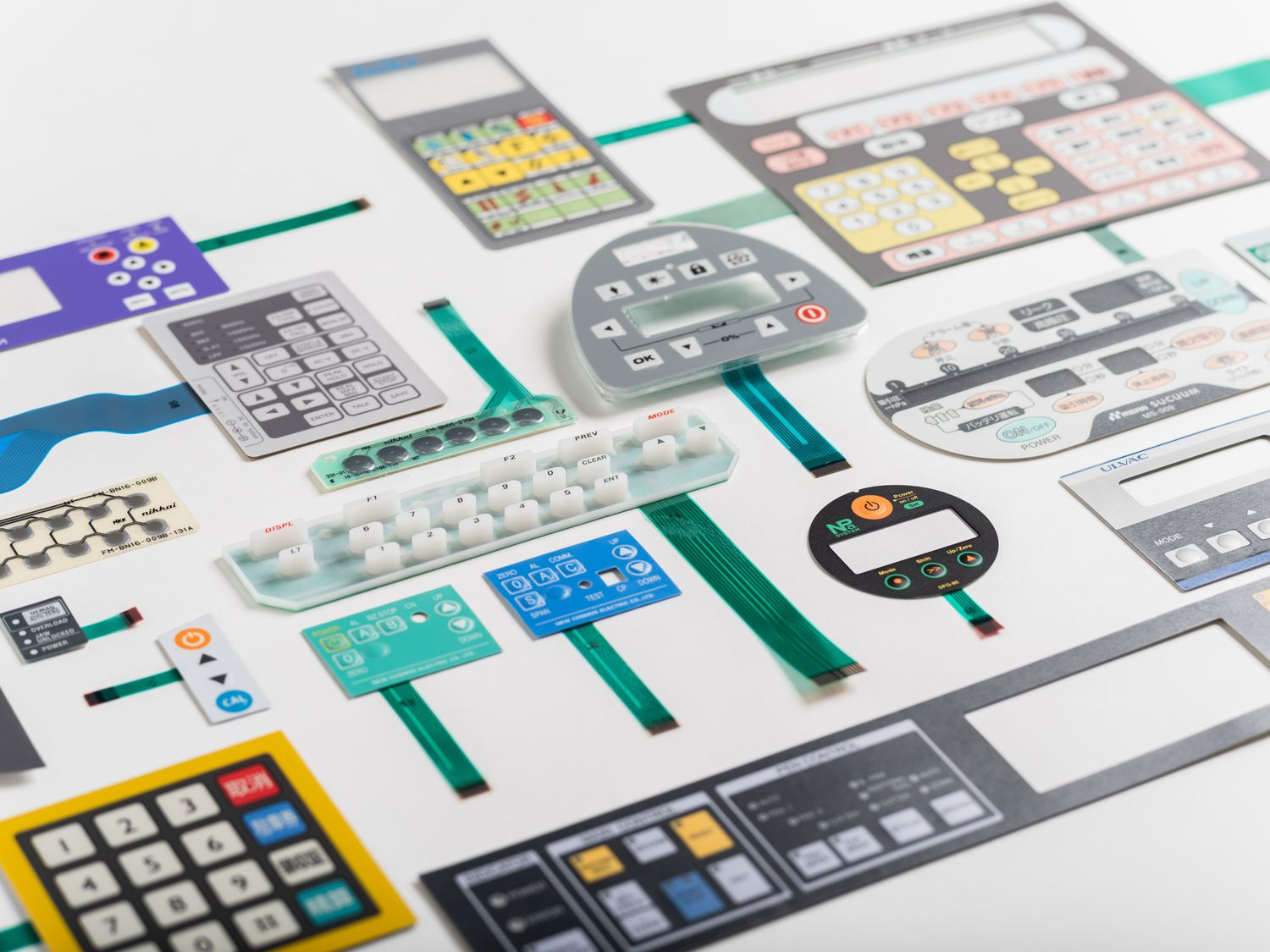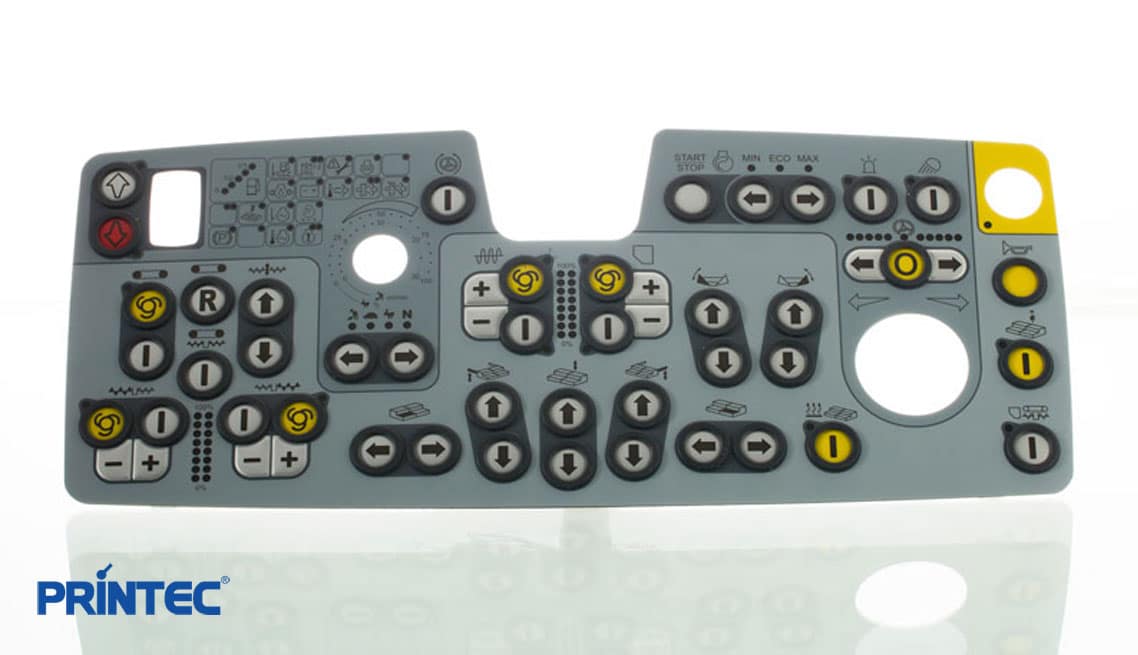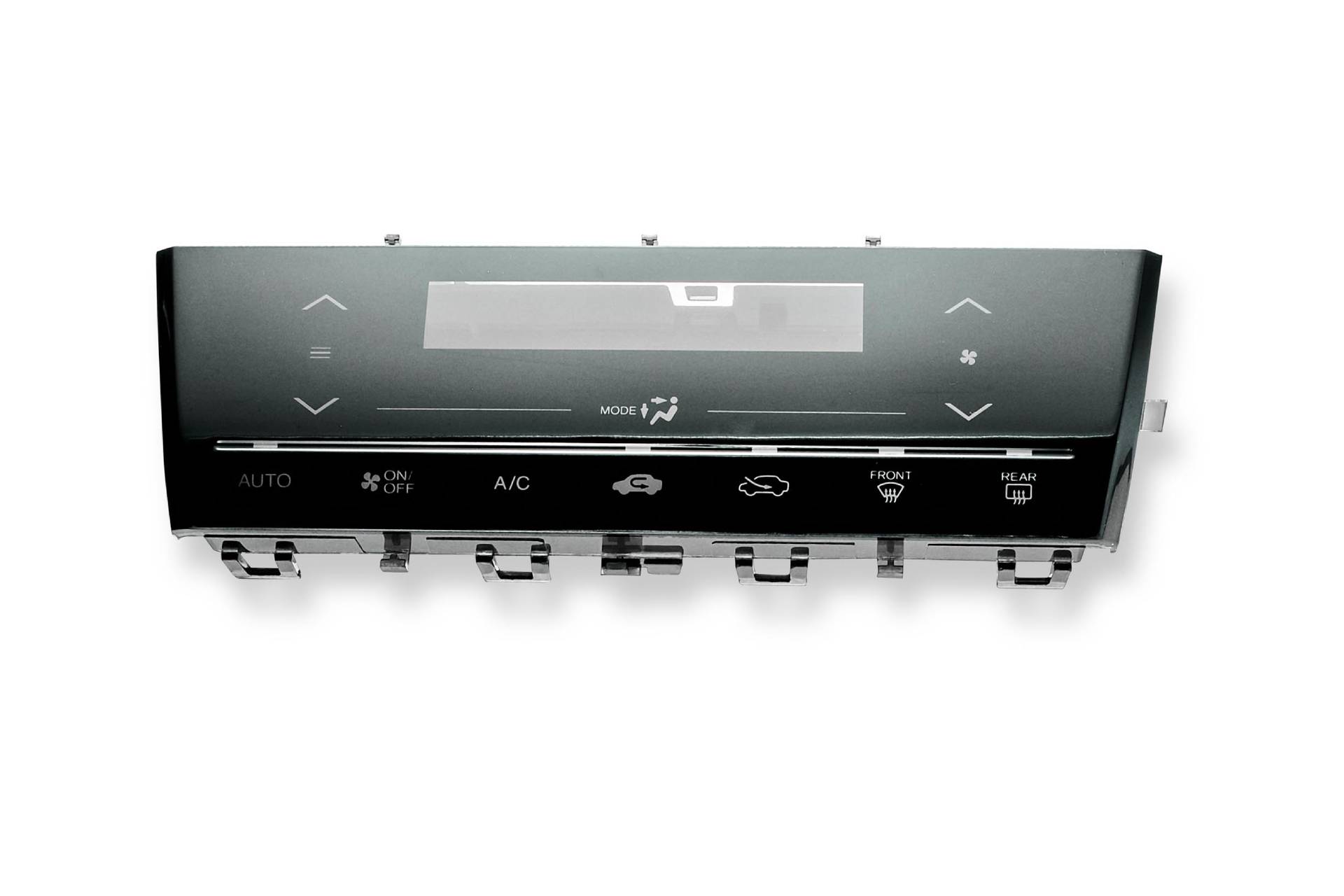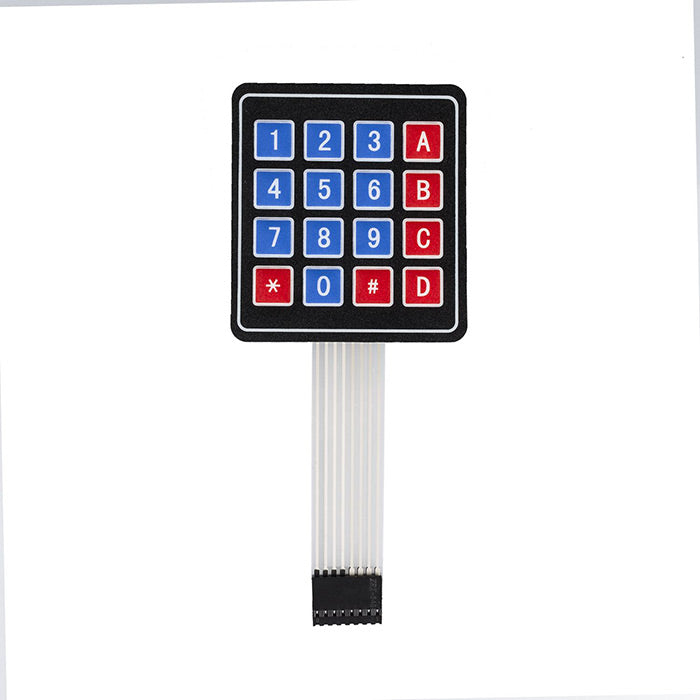Understanding the Value of Membrane Switch in Modern Electronic Devices and Their Applications
Membrane switches over act as a vital component in modern-day electronic devices, supplying an efficient interface for customer interaction. Their light-weight and adjustable nature makes them suitable for an array of applications throughout diverse industries. Understanding their crucial parts and benefits can give understandings right into their expanding significance. As innovation remains to advance, the advancement of Membrane switches over questions regarding their future applications and layout developments. What lies ahead in this dynamic area?

What Are Membrane Switches?
Membrane buttons are vital parts in contemporary electronics, serving as interface that help with communication in between customers and gadgets. These buttons contain a number of layers, including a visuals overlay, an adhesive layer, and a circuit layer, every one of which job with each other to produce a practical and sturdy interface. The design permits a level, inconspicuous option that can be tailored concerning dimension, form, and aesthetic appearance, making them suitable for various applications, from customer electronics to clinical devices. The tactile responses given by Membrane switches enhances individual experience, while their resistance to dirt and dampness makes them perfect for testing atmospheres. In addition, Membrane switches can incorporate attributes such as backlighting and published graphics, even more broadening their functionality. Their flexibility and effectiveness make them a recommended choice in markets where dependability and convenience of use are vital, inevitably adding to the seamless procedure of modern-day electronic gadgets.
Trick Parts of Membrane Switches Over
While different elements contribute to the capability of a membrane button, 3 primary layers play substantial duties in its layout and procedure. The top layer, normally made from a resilient polymer, serves as the user interface for individual communication, usually featuring printed graphics and icons. Beneath this is the spacer layer, which maintains the required distance between the leading layer and the circuit layer. This spacer layer assurances that the switch triggers just when pushed, avoiding unexpected inputs. The circuit layer contains conductive traces that finish the electric circuit when the leading layer is dispirited. These traces can be made from different materials, including copper or silver. Together, these parts create a durable and reputable device that is compact and versatile, suitable for a variety of digital applications, from house appliances to medical devices. Recognizing these essential parts is vital for appreciating the general functionality of Membrane switches.
Benefits of Utilizing Membrane Switches

Membrane Switch Manufacturing Refine
Recognizing the Membrane switch manufacturing process discloses the elaborate steps involved in generating these vital components. The procedure normally starts with the style stage, where formats and requirements are created utilizing specialized software application. Following this, the visuals overlay is printed on an adaptable substratum, frequently utilizing high-resolution printing methods to guarantee quality and precision.Next, the sticky layers are applied, which serve to bond the various elements with each other. The circuit layers, made from conductive inks or products, are then published onto a different substratum. These layers are thoroughly straightened and laminated flooring to develop a useful switch.After assembly, the switches undertake evaluating to verify performance and durability. Quality assurance procedures are implemented throughout the procedure to identify and correct any kind of issues. The finished Membrane switches are packaged and prepared for circulation, prepared to satisfy the needs of modern digital applications.
Applications of Membrane Switches Over in Numerous Industries
Membrane buttons are progressively utilized across various sectors, especially in medical tools and consumer electronics. In the medical field, they provide trusted control interfaces for tools that require exact operation. In customer electronic devices, these buttons enhance individual communication by offering responsive and streamlined user interfaces. Receptive Medical Equipment Control
Countless contemporary clinical gadgets utilize Membrane buttons for structured procedure and enhanced user communication. These switches provide a trusted, sturdy user interface for a variety of applications, consisting of diagnostic tools, client tracking systems, and medical instruments. Their adjustable designs enable particular layouts that can accommodate the unique needs of health care experts, making certain user-friendly navigating and effective access to important functions. In addition, Membrane buttons are resistant to impurities, making them ideal for sterile settings. The tactile feedback they offer can enhance customer self-confidence, reducing the danger of errors during crucial clinical procedures. Overall, the assimilation of Membrane buttons in medical devices substantially adds to enhanced operational performance and patient safety in medical care settings.
Consumer Electronics Interfaces
In the domain of consumer electronic next page devices, Membrane switches play a crucial duty in improving interface across a variety of gadgets. These buttons are integral to items such as remote controls, microwaves, and pc gaming consoles, providing a effective and easy to use user interface. Their layout permits a smooth integration of graphics and performance, enabling suppliers to develop sleek, modern aesthetics without compromising functionality. Membrane switches are likewise recognized for their durability, often withstanding considerable usage and direct exposure to different ecological problems. Furthermore, they can incorporate attributes like backlighting and responsive comments, additional boosting the customer experience. As customer needs for advanced yet intuitive interfaces grow, Membrane switches continue to be an essential part beforehand electronic tool performance.
Layout Considerations for Membrane Switches
Creating effective Membrane switches over calls for careful interest to different elements that influence both capability and customer experience. One essential consideration is the choice of products, as they can impact resilience, tactile responses, and aesthetic charm. Picking an appropriate adhesive is vital for assuring long-term adhesion and resistance to ecological factors.In addition, the design and design of the switch should fit customer interaction, with switch sizes and spacing maximized for ease of usage. The unification of graphics and labeling need to focus on clearness and visibility under various lights conditions.Consideration of electric attributes, such as actuation force and switch level of sensitivity, will certainly improve the responsiveness of the Membrane button. The style ought to fit producing processes to assure cost-effectiveness and prompt production. In general, a well-balanced layout enhances both the performance and the user experience of Membrane buttons in contemporary electronic devices.

Future Patterns in Membrane Switch Innovation
As modern technology continues to develop, Membrane buttons are poised to integrate brand-new developments that will certainly enhance their capability and application in various fields. One considerable fad is the incorporation of long lasting and adaptable materials, which will raise the life-span and integrity of these buttons. Improved surface textures and customizable graphics are also anticipated, enabling even more intuitive customer interfaces.Moreover, the combination of smart modern technology, such as touch-sensitive surfaces and haptic comments, is expected to improve user interaction, making Membrane switches extra receptive and engaging. Additionally, developments in published electronic devices will make it possible for more complex wiring within thinner accounts, better broadening layout possibilities.Sustainability will certainly likewise play an essential duty in future growths, as producers discover environment-friendly materials and manufacturing procedures. In general, these trends will certainly assure that Membrane changes stay crucial and pertinent in an interconnected and increasingly electronic globe.
Frequently Asked Concerns
How Do Membrane Switches Compare to Standard Mechanical Buttons?
Membrane switches deal advantages over standard mechanical buttons, consisting of minimized size, lighter weight, and improved toughness. They commonly offer a secured surface area, boosting resistance to dirt and wetness, useful reference making them ideal for diverse applications.
What Products Are Typically Made Use Of in Membrane Switch Building And Construction?

Can Membrane Changes Withstand Extreme Environmental Issues?
Membrane switches can stand up to severe environmental problems, relying on their style and materials. Top quality constructions typically include longevity against temperature level changes, moisture, and direct exposure to chemicals, making them suitable for various requiring applications throughout sectors.
How Much Time Do Membrane Changes Generally Last Prior To Failing?
Membrane switches over commonly exhibit a lifespan varying from 1 to 10 million actuations, depending upon variables such as use frequency, environmental conditions, and producing high quality. Routine upkeep can extend their longevity and functional dependability considerably.
Are Membrane Switches Personalized for Particular Applications?
Membrane switches are indeed personalized for specific applications. They can be customized in size, look at this web-site design, and performance, enabling makers to satisfy one-of-a-kind customer requirements and boost item aesthetic appeals while maintaining operational performance and sturdiness. Membrane buttons are important parts in modern electronics, serving as individual interfaces that assist in interaction in between tools and users. The responsive feedback supplied by Membrane switches boosts individual experience, while their resistance to dirt and wetness makes them excellent for challenging atmospheres. The incorporation of graphics and labeling should focus on clearness and exposure under different lights conditions.Consideration of electric qualities, such as actuation force and switch sensitivity, will certainly improve the responsiveness of the Membrane switch. Enhanced surface area textures and adjustable graphics are also expected, enabling for more user-friendly customer interfaces.Moreover, the integration of wise technology, such as touch-sensitive surface areas and haptic feedback, is anticipated to enhance individual interaction, making Membrane changes a lot more receptive and appealing. Membrane changes deal advantages over conventional mechanical buttons, including reduced size, lighter weight, and enhanced durability.